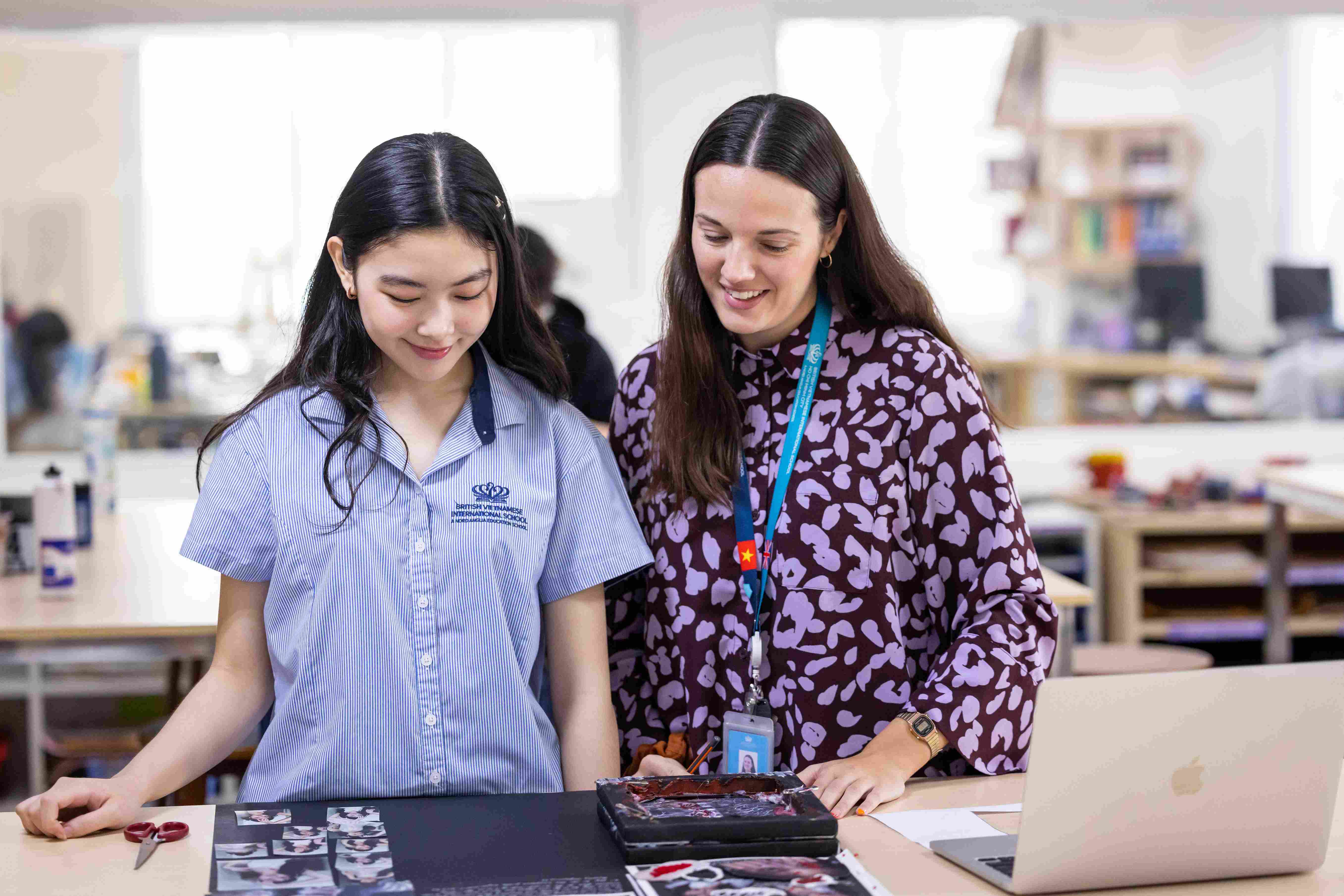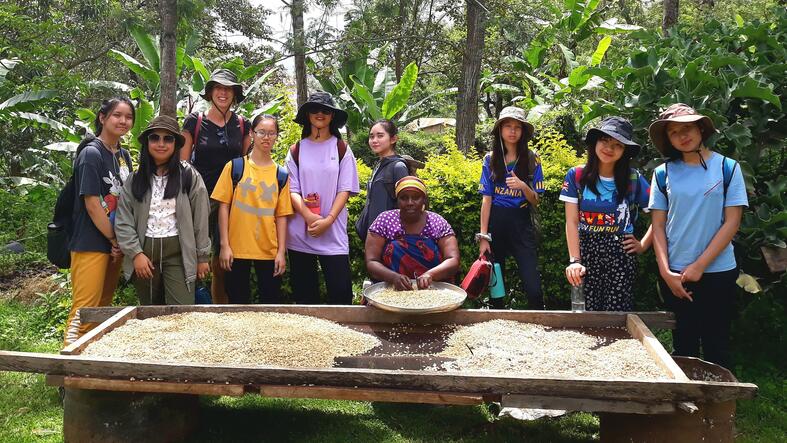Your child’s learning will include transformative experiences that nurture their talents, unlock their potential and inspire them to go further than they ever thought possible. That’s why we offer programmes, collaborations, and experiences that ignite potential, inspire lifelong learning, and nurture talents and passions.
Our local adventures immerse students in Vietnam’s culture, heritage and landscape, while our global expeditions encourage them to become citizens of the world with their friends – from villages in the subtropic forests of Tanzania where they learn about service work and environmental sustainability, to Switzerland’s snow dusted mountains that challenge our students’ resilience, and empathy and foster leadership skills.
As part of the Nord Anglia Education family, our students also connect, collaborate, problem-solve and support their peers in 32 countries around the world, through our unique online experience programme, Global Campus.

.jpg?h=5197&iar=0&w=7792&rev=af7523aba1bc4d919e19d33050efd0c6&hash=60538A49425BAE05AC489244DFC14F6E)
.jpg?h=4412&iar=0&w=6616&rev=a60f805361e5471bb811098bab389bba&hash=421D58B831024D0EDFA9DF5BADCC4885)
.jpg?h=4158&iar=0&w=6234&rev=53d60a1501b44c34a48ee743b7d0e52b&hash=02962BBC550262160FDFEEBA9BC0A663)



.jpg?h=3765&iar=0&w=5645&rev=491a4e257b0a451696d117b969fae107&hash=05717AEF6EA18CD699BA53A9F20065E6)


.jpg?h=3871&iar=0&w=5804&rev=64ab7d45e6994b48bc00a50cc55ed345&hash=F519FFE7FB3690AEA34FF3480B77E3E4)
.jpg?h=3765&iar=0&w=5645&rev=f17744963a6d4d2c87e039ad8af5bb8b&hash=B1B8E418966A001A27B420A480E8D69B)


.jpg?h=4183&iar=0&w=6270&rev=efaebe57ddf94f09866de12a3b234473&hash=AB060A1849B515C31A7DD4DFAC763C3D)






.png?h=2709&iar=0&w=2709&rev=f4fc7e77c25f48e6915b5a38157d7cae&hash=890F5B145602AF56D838E08B4FFA2B85)